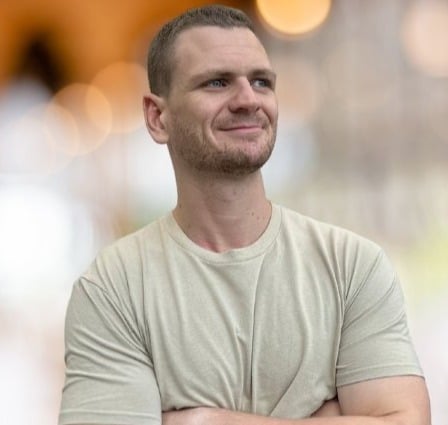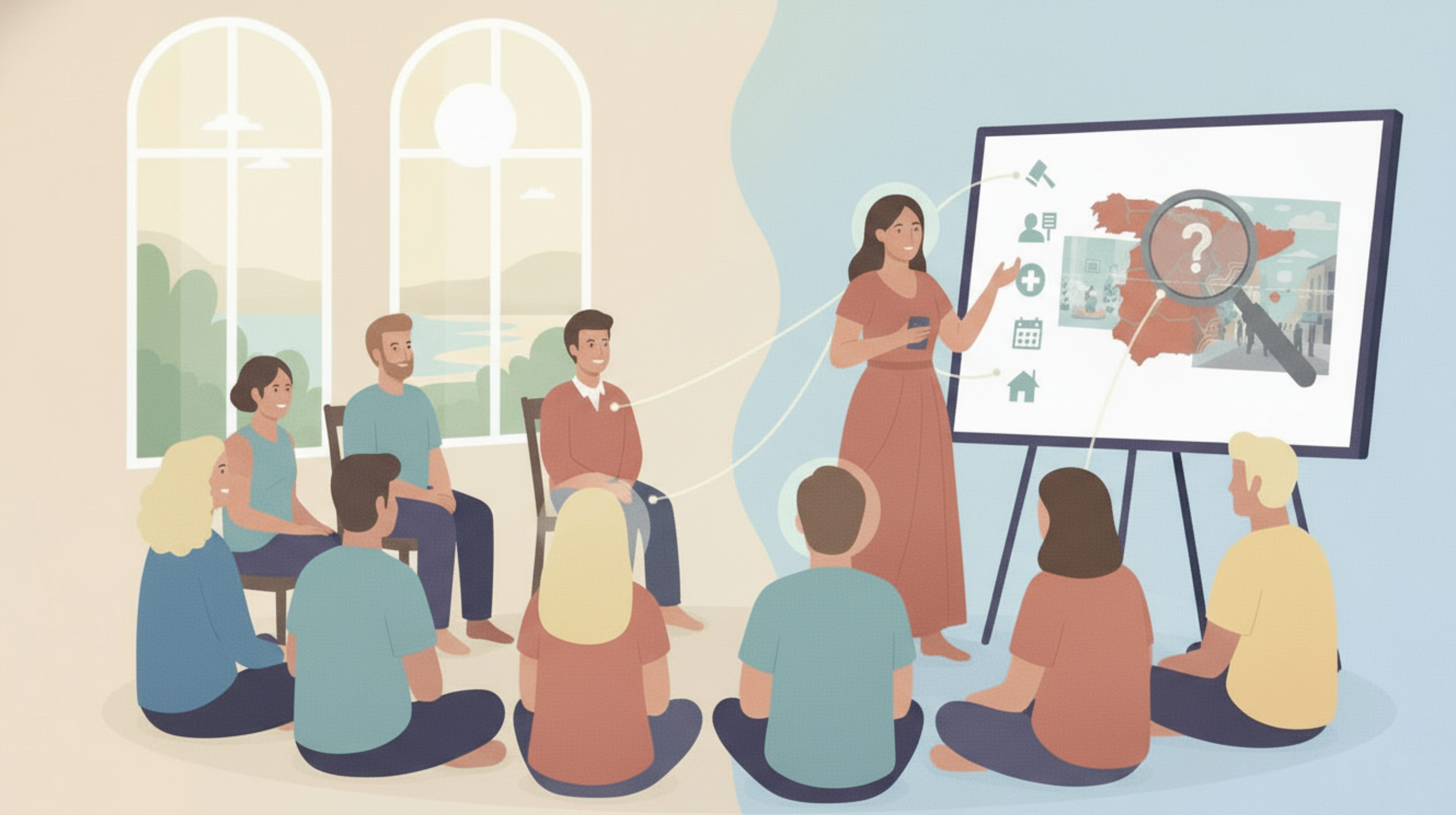Psychedelics are as popular as they’ve ever been. Researchers are more closely studying their ability to treat mental disorders like depression and PTSD. And some people take them to think about problems or circumstances from a different point of view than their norm. But there aren’t many places where folks can safely and legally consume psychedelics, and anyone looking to try them needs to be judicious about where and with whom they do so.
Spain has become a destination for the psychedelic curious, though the legality of taking psychedelics there is murky. Below, we’ll explain the legal framework of psychedelics in Spain as well as the way that some people choose to engage with them in this coastal country.
So, Are Psychedelics Legal in Spain?
It’s complicated. The shortest answer is no, psychedelic drugs are not legal to possess or distribute. However, personal use and possession in private spaces are decriminalized, which basically means anyone caught using them won’t be subject to criminal penalties.
This creates a legal gray area, allowing retreat centers to operate within carefully defined parameters. Public possession can result in administrative fines, but private use—particularly in ceremonial contexts—is generally not subject to criminal prosecution.

While you’re unlikely to face consequences for privately using psychedelics, the downside of decriminalization is that the country doesn’t have legal frameworks in place to ensure safe use. For example, Oregon has facilities that distribute safe and effective doses of psilocybin for psychedelic-assisted therapy. These facilities are closely monitored and adhere to strict, clinically proven protocols.
Our point is this: If you’re taking psychedelics in Spain, the quality of the compounds and experience of the facilitators isn’t guaranteed. That’s why you must work with reputable retreat centers that prioritize participant safety, operate transparently, and adhere to ethical guidelines.
The Types of Retreats Available in Spain
While you can technically procure psychedelics like MDMA (aka ecstasy), you’ll find more retreat options for psilocybin and ayahuasca. If you’re unfamiliar, here’s a concise breakdown of the two:
Psilocybin vs. Ayahuasca
The main similarity between these two compounds is that they elicit profound outcomes. Retreats are not the same as psychedelic-assisted therapy, but retreat-goers can still encounter thoughts and feelings that, when paired with integration strategies, may lead to life-altering changes in how a person acts and feels. The differences in ayahuasca vs. psilocybin come down to a few salient points:
Ayahuasca
- Active compound: DMT (N,N-dimethyltryptamine)
- Onset of effects: 30 to 60 minutes
- Duration: 4 to 8 hours (sometimes longer)
- Physical side effects: Mainly vomiting and diarrhea (called “purging”)
Magic Mushrooms
- Active compound: Psilocybin
- Onset of effects: 20 to 40 minutes
- Duration: 4 to 6 hours
- Physical side effects: Sometimes nausea, increased heart rate, and sweating
Choosing a Safe and Reputable Retreat
Although the process may vary based on the psychedelic you choose, any reputable retreat service should follow a checklist of clinically backed hallucinogen safety guidelines. Here’s what to inquire about:
Legality and ethics: Is the retreat operating within the host country’s legal framework? Make sure to research this yourself and ask as many questions as you’d like to the onboarding facilitator.
Facilitator qualifications: Are the facilitators experienced in psychedelic-assisted therapy, counseling, or therapy? Do they have experience with trauma? Have they used the substance themselves?
Safety protocols: Do participants undergo psychological and medical screenings prior to the ceremony? Do the facilitators have emergency protocols in place? How do they handle an experience gone bad? Will a doctor and emergency staff be on-site?

Preparation: A good retreat will prepare you for the ceremony with preparatory materials and integration support, group calls, and one-on-one calls to help you set your intentions before the ceremony. Ask about this process: How long will it take? What materials do you provide? How many calls do I get?
Setting: Setting refers to the physical space you’re in and the people you’re surrounded by during the ceremony, and it plays a significant role in how you feel during the ceremony. Ideally, you want a space that feels calm and safe. Also, ask about the facilitator-to-participant ratio and the average size of the group.
Integration Support: Integration refers to the work you do after the retreat to carry your realization from the ceremony into real life. This is a lengthy process that may require continued attention after working with your provider. Still, any legitimate retreat should offer at least a few weeks of integration support through coaching, journaling, and community.
Reviews: Always check out the company’s reputation online, and, ideally, from people you know.
Red Flags to Watch For
Be cautious of retreats that make exaggerated therapeutic claims, lack information about facilitator credentials, or skip proper medical screening. Other warning signs include a lack of integration support, facilitators who are unavailable or dismissive of concerns, and centers that prioritize profit over participant well-being, dignity, and long-term growth in mind.
Frequently Asked Questions
While trafficking is illegal, personal use in private settings is decriminalized. Reputable centers work within these legal parameters to ensure participant safety.
Research indicates psilocybin is typically introspective and emotionally focused, while ayahuasca is more visionary and purgative, often involving traditional ceremony. The choice depends on your personal intention.
Look for training, years of experience, and background in both traditional practices and modern psychological support. Strong facilitators combine deep ceremonial knowledge with therapeutic training.
Costs vary widely based on retreat length, accommodation, and professional support, typically ranging from several hundred to several thousand euros. Prioritize quality of care over cost, as safety and trained facilitation are non-negotiable.
Integration is making sense of your experience and weaving insights into daily life through coaching, journaling, meditation, and community support. This is the key to creating lasting change.
Sources
- European Monitoring Centre for Drugs and Drug Addiction. (2019). Spain: Country drug report 2019. https://www.euda.europa.eu/system/files/publications/11353/spain-cdr-2019.pdf
- Girn, M., Roseman, L., Bernhard, A., Preller, K. H., Kometer, M., Vollenweider, F. X., & Carhart-Harris, R. L. (2025). Set and setting of psychedelics for therapeutic use in naturalistic and clinical contexts: A systematic review. Journal of Psychopharmacology. https://doi.org/10.1177/02698811251338214
- Harris Sliwoski LLP. (2025, May 19). Conducting psychedelic retreats abroad: Protecting yourself and participants. https://harris-sliwoski.com/psychlawblog/conducting-psychedelic-retreats-abroad-protecting-yourself-and-participants/
- Hopkins Center for Psychedelic & Consciousness Research. Johns Hopkins Medicine. https://hopkinspsychedelic.org/
- ICEERS. (2025, August 12). Can ayahuasca be used legally in Spain? https://www.iceers.org/ayahuasca-used-legally-in-spain/
- Johnson, M. W., Richards, W. A., & Griffiths, R. R. (2008). Human hallucinogen research: Guidelines for safety. Journal of Psychopharmacology, 22(6), 603-620. https://files.csp.org/Psilocybin/HopkinsHallucinogenSafety2008.pdf
- Lafrance, A., Loizaga-Velder, A., Fletcher, J., Renelli, M., Files, N., & Tupper, K. W. (2022). Psychedelic integration: An analysis of the concept and its practice. Frontiers in Psychology, 13, Article 824077. https://doi.org/10.3389/fpsyg.2022.824077
- MAPS (Multidisciplinary Association for Psychedelic Studies). (2025, October 20). MAPS Psychedelic Integration Station. https://maps.org/integration-station/
- Tripsitter. (2024, March 20). Spain’s laws & psychedelics: A pattern for the rest of the world? https://tripsitter.com/legal/spain/
- Unlimited Sciences. (2025, July 14). 5 essential steps before a psychedelic experience. https://unlimitedsciences.org/5-essential-steps-before-a-psychedelic-experience/

Andrew Gutman
Andrew Gutman is a NASM-certified personal trainer and journalist with 10 years of experience covering fitness and nutrition. He’s the former fitness editor at Muscle & Fitness and was managing editor at BarBend, where he led coverage of the Olympics and World’s Strongest Man. His writing appears in Men’s Health, Business Insider, and Gear Patrol. Outside of work, Andrew trains in Brazilian Jiu-Jitsu, kickboxing, and bodybuilding—and is a proud stay-at-home dad to his first son.
-2-1.png)
